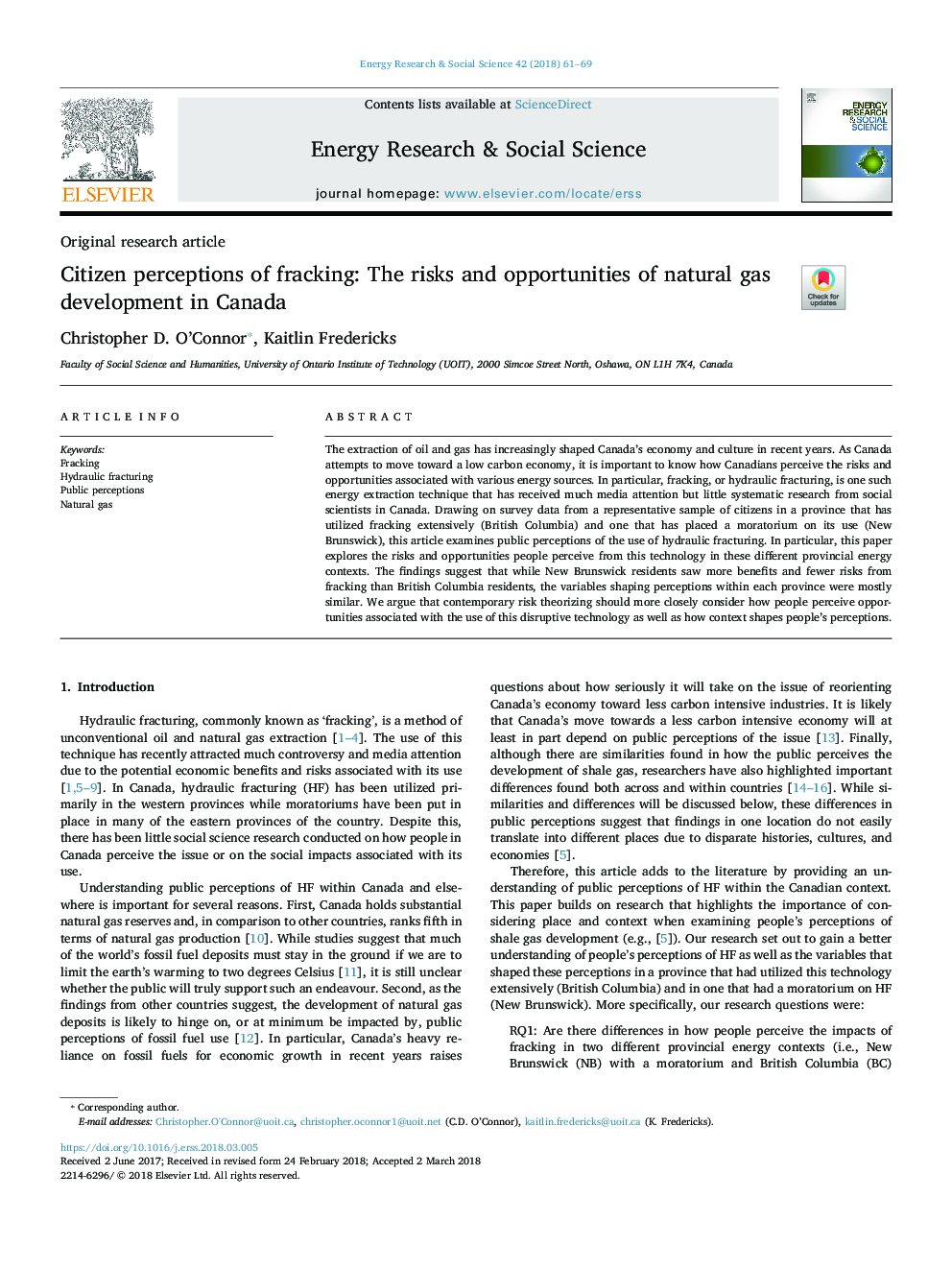| Article ID | Journal | Published Year | Pages | File Type |
|---|---|---|---|---|
| 6557264 | Energy Research & Social Science | 2018 | 9 Pages |
Abstract
The extraction of oil and gas has increasingly shaped Canada's economy and culture in recent years. As Canada attempts to move toward a low carbon economy, it is important to know how Canadians perceive the risks and opportunities associated with various energy sources. In particular, fracking, or hydraulic fracturing, is one such energy extraction technique that has received much media attention but little systematic research from social scientists in Canada. Drawing on survey data from a representative sample of citizens in a province that has utilized fracking extensively (British Columbia) and one that has placed a moratorium on its use (New Brunswick), this article examines public perceptions of the use of hydraulic fracturing. In particular, this paper explores the risks and opportunities people perceive from this technology in these different provincial energy contexts. The findings suggest that while New Brunswick residents saw more benefits and fewer risks from fracking than British Columbia residents, the variables shaping perceptions within each province were mostly similar. We argue that contemporary risk theorizing should more closely consider how people perceive opportunities associated with the use of this disruptive technology as well as how context shapes people's perceptions.
Related Topics
Physical Sciences and Engineering
Energy
Energy (General)
Authors
Christopher D. O'Connor, Kaitlin Fredericks,
